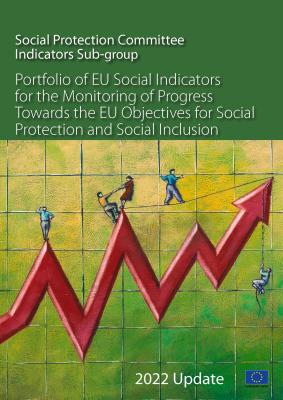This section allows you to
- search publications by subject, keyword, publication date or type
- order the publications you are interested in by contacting us or through EU Publications, the online catalogue of publications of the European institutions
Filter by
Publications (213)
RSS
The 2022 update of the Portfolio of EU social indicators provides a comprehensive framework for monitoring progress towards the EU's social protection and social inclusion objectives.

This first Meta-analysis ever carried out synthesizes the findings of the individual ESF counterfactual impact evaluations carried out by the Member States in the 2007-2013 and 2014-2020 programming periods.

This report sheds light on the role of Public Employment Services (PES) in delivering labour market training to long-term unemployed (LTUs) individuals, helping them adapt to the changing labour market.

This report provides a comprehensive analysis of the social situation in the European Union, fulfilling the Social Protection Committee's mandate to monitor and report on social protection policies.

This report provides an overview of the current state of play as regards minimum income in the EU Member States, reflecting the three policy strands of active inclusion: adequate income support, inclusive labour markets and access to quality services.

The October 2022 edition of the Employment and Social Developments Quarterly Review presents and discusses data that was mostly collected in the first half of 2022 and made available in the weeks ahead of publication of this review.

This conference explored the latest strategies and solutions to address the pressing challenges facing the labour market, including skill shortages, mismatches, and the impact of digitalization.
This toolkit provides a practical guide, with concrete examples, for how Public Employment Services (PES) can promote the participation of persons with disabilities in the labour market.
This study explores and investigates the skills needs of various SMEs, from a broad set of sectors and maturity stages. Based on the analysis of the literature, interviews with stakeholders and SMEs, as well as tool case studies.
The report examines long-term care systems for people aged 65 or above in the 27 EU Member States. It reveals that long-term care challenges have become increasingly salient in recent decades in EU Member States’ policy and political agendas.
